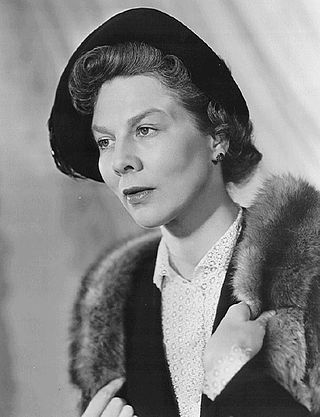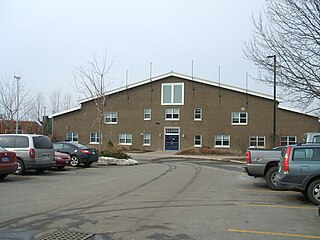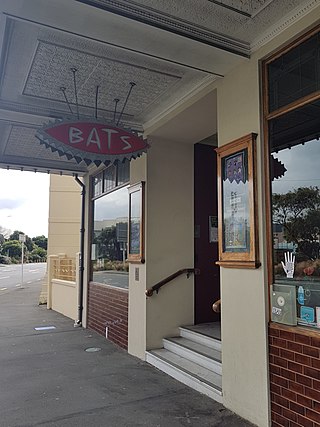
Dame Wendy Margaret Hiller, was an English film and stage actress who enjoyed a varied acting career that spanned nearly 60 years. Writer Joel Hirschorn, in his 1984 compilation Rating the Movie Stars, described her as "a no-nonsense actress who literally took command of the screen whenever she appeared on film". Despite many notable film performances, Hiller chose to remain primarily a stage actress.

David Garrick was an English actor, playwright, theatre manager and producer who influenced nearly all aspects of European theatrical practice throughout the 18th century, and was a pupil and friend of Samuel Johnson. He appeared in several amateur theatricals, and with his appearance in the title role of Shakespeare's Richard III, audiences and managers began to take notice.

Sir Arthur Wing Pinero was an English playwright and, early in his career, actor.

Hedda Gabler is a play written by Norwegian playwright Henrik Ibsen. The world premiere was staged on 31 January 1891 at the Residenztheater in Munich. Ibsen himself was in attendance, although he remained back-stage. The play has been canonized as a masterpiece within the genres of literary realism, nineteenth century theatre, and world drama. Ibsen mainly wrote realistic plays until his forays into modern drama. Hedda Gabler dramatizes the experiences of the title character, Hedda, the daughter of a general, who is trapped in a marriage and a house that she does not want. Overall, the title character for Hedda Gabler is considered one of the great dramatic roles in theater. The year following its publication, the play received negative feedback and reviews. Hedda Gabler has been described as a female variation of Hamlet.

The history of Irish theatre begins in the Middle Ages and was for a long time confined to the courts of the Gaelic and "Old English" – descendants of 12th-century Norman invaders – inhabitants of Ireland. The first theatre building in Ireland was the Werburgh Street Theatre, founded in 1637, followed by the Smock Alley Theatre in 1662.

The Atlantic Theatre Festival (ATF) was a professional theatre company located in Wolfville, Nova Scotia, Canada. The Theatre Festival presented a "broad range of critically acclaimed theatre classics" during the summer in Wolfville's Festival Theatre, the former town hockey arena that was converted into a 504 seat, thrust stage theatre and professional production facility by the Atlantic Theatre Festival Society.

Peter John Bowles was an English screen and stage actor. He gained prominence for television dramas such as Callan: A Magnum for Schneider and I, Claudius. He is however, best remembered for his roles in sitcoms and television comedy dramas, including: Rumpole of the Bailey, Only When I Laugh, To the Manor Born, The Bounder, The Irish R.M., Lytton's Diary, Executive Stress and Perfect Scoundrels.

The Theatre Royal Haymarket is a West End theatre on Haymarket in the City of Westminster which dates back to 1720, making it the third-oldest London playhouse still in use. Samuel Foote acquired the lease in 1747, and in 1766 he gained a royal patent to play legitimate drama in the summer months. The original building was a little further north in the same street. It has been at its current location since 1821, when it was redesigned by John Nash. It is a Grade I listed building, with a seating capacity of 888. The freehold of the theatre is owned by the Crown Estate.

Christopher Fry was an English poet and playwright. He is best known for his verse dramas, especially The Lady's Not for Burning, which made him a major force in theatre in the 1940s and 1950s.

Annie Elizabeth Fredericka Horniman CH was an English theatre matron and manager. She established the Abbey Theatre in Dublin and founded the first regional repertory theatre company in Britain at the Gaiety Theatre in Manchester. She encouraged the work of new writers and playwrights, including W. B. Yeats, George Bernard Shaw and members of what became known as the Manchester School of dramatists.

The Royal Exchange is a grade II listed building in Manchester, England. It is located in the city centre on the land bounded by St Ann's Square, Exchange Street, Market Street, Cross Street and Old Bank Street. The complex includes the Royal Exchange Theatre and the Royal Exchange Shopping Centre.

Clement William Scott was an influential English theatre critic for The Daily Telegraph and other journals, and a playwright, lyricist, translator and travel writer, in the final decades of the 19th century. His style of criticism, acerbic, flowery and carried out on the first night of productions, set the standard for theatre reviewers through to today.

BATS Theatre is a theatre venue in Wellington, New Zealand. Initially founded as the Bats Theatre Company in 1976, then established in its current form in 1989. BATS Theatre has seen the development of many performing arts talents of New Zealand.

The Royalty Theatre was a small London theatre situated at 73 Dean Street, Soho. Established by the actress Frances Maria Kelly in 1840, it opened as Miss Kelly's Theatre and Dramatic School and finally closed to the public in 1938. The architect was Samuel Beazley. The theatre's opening was ill-fated, and it was little used for a decade. It changed its name twice and was used by an opera company, amateur drama companies and for French pieces.

Theatre of Australia refers to the history of the live performing arts in Australia: performed, written or produced by Australians.

John Gabriel Borkman is a 1896 play by the Norwegian playwright Henrik Ibsen. It was his penultimate work.

Theatre of United Kingdom plays an important part in British culture, and the countries that constitute the UK have had a vibrant tradition of theatre since the Renaissance with roots going back to the Roman occupation.
Star Chamber is a one-act play by Noël Coward, one of ten that make up Tonight at 8.30, a cycle written to be performed in alternating groups of three plays, across three evenings. In the introduction to a published edition of the plays, Coward wrote, "A short play, having a great advantage over a long one in that it can sustain a mood without technical creaking or over padding, deserves a better fate, and if, by careful writing, acting and producing I can do a little towards reinstating it in its rightful pride, I shall have achieved one of my more sentimental ambitions."
The Independent Theatre Society was a by-subscription-only organisation in London from 1891 to 1897, founded by Dutch drama critic Jacob Grein to give "special performances of plays which have a literary and artistic rather than a commercial value." The society was inspired by its continental forerunners, the Théâtre-Libre and Die Freie Bühne. The Society produced modern realist plays, mostly by continental European playwrights, on the London stage.

The People's Theatre is an amateur theatre in Newcastle upon Tyne, England. Originally located in the city centre, the People's Theatre moved to its current site, adjacent to the Coast Road in Heaton, in 1962. It shows approximately 13 productions a year including a full-scale family pantomime.



















